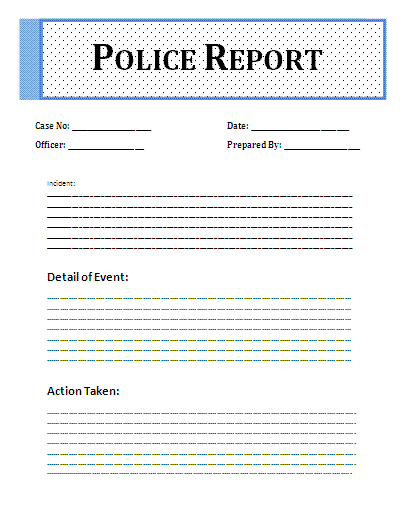When a person is convicted and sent to jail, their life undergoes a significant upheaval, and this extends to their properties as well. The legal system has provisions in place to manage the properties of convicted individuals, ensuring fairness and adherence to the law. In this comprehensive overview, we will delve into ten key aspects that highlight what happens to the properties of a convicted person: asset forfeiture, property management, mortgages, personal belongings, and familial impact.
1. Asset Forfeiture: The Legal Process and Implications
Asset forfeiture is a legal mechanism by which the government seizes properties that are believed to be connected to criminal activities. This can encompass a wide range of assets, from homes to vehicles to financial accounts. The process typically involves a court proceeding, during which the prosecution presents evidence linking the property to criminal activity. If the court finds a connection, the property is confiscated, and it becomes government property, often used for public benefit or sold at auction.
Asset forfeiture laws vary widely by jurisdiction, and they can have profound consequences. On one hand, they serve as a deterrent to criminal behavior by targeting ill-gotten gains. On the other hand, they raise concerns about due process and potential abuse, as some cases involve innocent property owners. Balancing the need to curb criminal activities with protecting individuals’ rights is an ongoing challenge in this aspect of property disposition.
2. Property Management: Ensuring Preservation and Value
When a person is incarcerated, the properties they own need to be managed properly to maintain their value. This might involve appointing a property manager or entrusting the responsibility to a family member. Homes need regular maintenance, bills must be paid, and potential tenants or buyers may need to be managed. Failing to do so could lead to property depreciation, financial losses, and legal complications.
Property management becomes particularly important if the incarcerated person has dependents who rely on the property for their housing and well-being. Family members may struggle to keep up with the responsibilities, leading to potential disruptions in their lives.
3. Mortgages: Navigating Financial Obligations
For a person convicted and incarcerated, mortgages on owned properties can become a financial burden. Even though they are incarcerated, the mortgage payments must still be made. Failing to do so can result in foreclosure and the loss of the property. Families or loved ones might shoulder this responsibility, but it can strain their finances. Some jurisdictions have programs that provide temporary relief for incarcerated individuals facing mortgage difficulties.
The issue of mortgages also intersects with asset forfeiture. If a property subject to mortgage is seized due to criminal connections, the mortgage holder could lose their investment. This highlights the complexity of the legal and financial landscape surrounding properties of convicted individuals.
4. Personal Belongings: Temporary Relocation and Storage
When a person is sent to jail, their personal belongings, particularly those left behind at their residence, need to be dealt with. In some cases, family members or friends might pack and store these belongings, while in other situations, a property management company might handle the process. These belongings may need to be stored for an extended period, potentially adding to the financial burden on the person’s family or loved ones.
5. Legal Ownership and Custodial Disputes: Ownership Claims During Incarceration
During the period of incarceration, legal ownership of properties might come into question. In some cases, disputes can arise among family members, partners, or beneficiaries regarding the ownership of certain properties. These conflicts can be exacerbated by strained relationships, conflicting wills, or unclear property titles. Such disputes can lead to prolonged legal battles, further complicating the fate of the properties.
The legal system must carefully navigate these ownership claims to ensure a fair and just resolution, considering the rights and intentions of all parties involved. Clear documentation and legal guidance become crucial to minimizing confusion and avoiding unnecessary legal entanglements.
6. Probationary and Parole Conditions: Property Restrictions and Monitoring
Upon release from jail, individuals often face probationary or parole conditions as part of their reintegration into society. These conditions might include restrictions on residing in specific areas, associating with certain individuals, or owning certain types of properties, such as firearms. Property ownership and residency can directly impact an individual’s ability to adhere to these conditions.
Probation and parole officers may conduct home visits to verify compliance, adding an additional layer of oversight to the individual’s properties. Failure to comply with these conditions can result in returning to jail, underscoring the importance of property-related factors in a person’s successful reintegration.
7. Restitution and Compensation: Financial Implications of Conviction
Convicted individuals might be required to pay restitution to victims as part of their sentence. This financial obligation can impact their ability to manage their properties. Restitution orders can be substantial, affecting a person’s finances and potentially forcing them to liquidate properties to fulfill their obligations.
Additionally, compensation to victims might be awarded through civil lawsuits. This compensation could target the convicted person’s properties as a source of financial reimbursement. The interplay between criminal sentences, restitution, and civil compensation adds a layer of complexity to the disposition of properties tied to a convicted person.
8. Rehabilitation and Property Reintegration: Supporting Reformed Individuals
The rehabilitation of convicted individuals is a key aspect of the justice system. As individuals complete their sentences and seek to reintegrate into society, their properties play a role in this process. Providing stable housing and access to their belongings can positively impact their ability to find employment and maintain a law-abiding lifestyle.
Some jurisdictions offer programs to support the property reintegration of reformed individuals. This might involve providing housing assistance or connecting them with resources to manage their properties effectively. The successful reintegration of convicted persons benefits not only the individuals themselves but also society at large.
9. Long-Term Impact and Future Prospects: Post-Conviction Challenges
Even after serving their sentences, individuals with a criminal record can face challenges related to their properties. Finding employment or suitable housing might be more difficult due to the stigma associated with a criminal history. Property-related complications, such as asset forfeiture or past mortgage issues, can further hinder a person’s ability to rebuild their life.
Community organizations and government initiatives that focus on re-entry support can help address these challenges. By providing resources for housing, job training, and legal assistance, these programs aim to break the cycle of recidivism and offer convicted individuals a chance for a fresh start.
The journey of a convicted individual through the criminal justice system has a profound impact on their properties and the people connected to them. Complex legal, financial, and emotional considerations shape the fate of these properties, ranging from asset forfeiture to post-conviction challenges. As society continues to evolve its understanding of rehabilitation and justice, the treatment of properties connected to convicted persons remains an integral part of the broader conversation. Balancing punitive measures with support for reintegration is an ongoing endeavor, seeking to achieve both accountability and the potential for positive change.
RELATED:
What Happens If a Prosecutor Refuses To File Charges? (Reasons and What To Do)
How To Prove You Weren’t Speeding In Court
Is Religious Confession Legally Privileged? Know The Law
FAQs Regarding the Impact of Conviction on Properties
1. How does asset forfeiture work and what properties can be subject to it?
Asset forfeiture is a legal process by which the government seizes properties that are believed to be linked to criminal activities. This process aims to deter criminal behavior by targeting the financial gains derived from illegal actions. The properties subject to forfeiture can vary widely, encompassing real estate, vehicles, bank accounts, and valuable items. These properties are considered “guilty” in a legal sense, as they are believed to have played a role in facilitating or benefiting from criminal actions.
The government must present evidence in court to establish a connection between the property and criminal activity. If successful, the court can order the property’s forfeiture, and it becomes government-owned or is sold at auction. While asset forfeiture can be a powerful tool in combating crime, it also raises concerns about potential abuse and the need to balance individuals’ rights against the pursuit of justice.
2. How can families manage properties of an incarcerated individual and deal with financial obligations like mortgages?
Managing the properties of an incarcerated individual can be a daunting task for their family members or loved ones. Mortgages, in particular, can pose a significant financial burden. Even though the person is incarcerated, mortgage payments must still be made to avoid foreclosure. To manage properties effectively, families often need to appoint property managers, negotiate with mortgage lenders for temporary relief, or make the payments themselves.
Property management involves more than just financial considerations. Homes need maintenance, bills must be paid, and decisions regarding tenants or property sales may need to be made. The added responsibility of property management can place additional stress on families already dealing with the emotional and practical challenges of having a loved one in jail.
Last updated on: April 27, 2024




